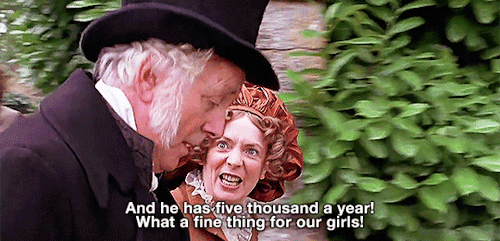Tags
Charles Dickens, humor, Jane Austen, London Season, marriage mart, paranormal, Queen Victoria, Victorian, victorian detective
It is a little unfair, I think, to criticize a person for not sharing the enlightenment of a later epoch, but it is also profoundly saddening that such prejudices were so extremely pervasive.
—Carl Sagan, Broca’s Brain
It’s called Values Dissonance.
As a writer, I love tropes—both using them (bad guy wears black hat) and subverting them (black hat-wearing bad guy loves his puppy). But while tropes are valuable shortcuts to values or meanings, that very cultural shorthand either makes it doubly difficult for them to survive across cultures or time, or makes them fodder for satire or parody.
Consider Disney movie classics that now make us cringe. (Beauty and the Beast: kidnapped girl falls for her captor, which causes him to turn into a rich handsome prince with better table manners and they live happily after.) That makes sense, right? (And don’t even get me started on pervy guys who assault sleeping girls…)
Values dissonance—the difference between current values and those of the time and place you’re writing about—is particularly a problem for works with historical settings. Do you maintain the now culturally-discredited values of your historical setting, or does your story play out with recognizable contemporary (if historically invalid) values? Consider the Victorian era, for example.
Once upon a time, a mother lived with one panic-inducing certainty: her children would be homeless paupers, dependent on the generosity of strangers, in a society where they have no rights to property, education, or even vote. So the mother dedicated her very life, her every scheme and plan and action to the goal of saving her children from certain destruction.
In contemporary Victorian terms, she would be the heroine. But in the wickedly sharp observations of a brilliantly satirical writer? Well, Jane Austen named her Mrs. Bennet, the single-minded slightly-stupid mama who is butt of all jokes and humor, especially from her husband and daughters. While her family indulges in lofty sentiments and witty banter, Mrs. Bennet (whose first name is never mentioned) lives in desperately single-minded dedication to securing their futures in the only venue open to them.
Despite Jane Austen’s ridicule (and the BBC’s 1995 miniseries and later versions which add in physical contact, kissing, and even post-honeymoon references to marital bliss), from a historical point of view, Mrs. Bennet’s approach to her family’s circumstances is not only correct but heroic. She gets it. So too does Lady Catherine De Bourgh. Viewed through our values dissonance lens and Jane Austen’s wit, we see Lady Catherine as the symbol of an entitled and imperious upper class. But for Victorian times, she is acting in the very best interests of her family.
“And is such a girl to be my nephew’s sister? Is her husband, is the son of his late father’s steward, to be his brother? Heaven and earth! —of what are you thinking? Are the shades of Pemberley to be thus polluted?” [image credit: BBC TV mini-series, 1995]
It is a truth universally acknowledged…

The Drawing-room held by Queen Victoria at Buckingham Palace on 6 May 1899, drawn by Lucien Davids, R.I., for The Illustrated London News (114, 1899, p 703)
There is a reason this is one of the best known opening lines in literature. Jane Austen is winking conspiratorially at her readers, inviting them into the select group who “see” the dissonance between contemporary society’s values and her (presumably more sophisticated) readers’ understanding about the way their Victorian world worked.
In reality, wealthy Victorians had two principle ways of safeguarding their family wealth and position:
- Entailed inheritance (where all property must be passed intact to eldest male descendent or relative).
- The London Season/Marriage Mart—from Easter until everyone leaves to shoot grouse on the Glorious (August) 12th—when heirs of the upper classes attend a series of balls, dinners, and social events to meet, court and marry.
To get an idea of the overwhelming economic effect of these two elements, consider what happened when interrupted. For three years (1861-63) following the death of Queen Victoria’s beloved husband Prince Albert, the London “Marriage Mart” Season was cancelled. No debutants were presented to the queen at court, no royal parties or balls were held. The results?
- The London economy staggered under the devastating three-year economic fallout from the members of society NOT spending a minimum of twenty-thousand pounds each—over five-hundred thousand in today’s money!—on a debutant’s wardrobe for the London Season, not to mention the additional thousands each family would otherwise have spent to rent a house in the best neighborhood, or to host balls, dinners, dances, etc.
- According to economist Mark Goñi, “The generation of ladies affected by the disruption were 80 percent more likely to marry a commoner, to end up with spouses with smaller landholdings, reducing sorting in landed wealth by 50 percent. Moreover, geographical distance between spouses’ family seats shrunk, indicating that the partner selection problem shifted to the local marriage markets temporarily.” —Assortative matching and persistent inequality: Evidence from the world’s most exclusive marriage market by Marc Goñi, University of Vienna, 2015
- In addition, when estates were subject to entail, fertility rates among heirs increased a whopping 83.5 percent over their non-entailed peers. (Childless Aristocrats. Inheritance and the extensive margin of fertility. —Paula Gobbi and Marc Goñi, 2019)
How do writers setting their work in Victorian times deal with these facts of social life and their ripple effect through society? Do they choose to constrain characters and plot to the culture of the time, or do they imbue them with modern sensibilities and some artificial construct that lets them operate outside of surrounding Victorian values?
I’ve been thinking about these questions as I read the newest volumes in two excellent series set in Victorian times. My reviews of Intrigue & Infamy by Carol Hedges (below), and Moon Over London by Shawna Reppert (next post) follow.
Intrigue & Infamy (The Victorian Detectives Book 7) by Carol Hedges
- Genre: Victorian Detective/Police Procedural
- Author: Carol Hedges
It is 1866, the end of a long hot summer in Victorian London, and the inhabitants are seething with discontent. Much of it is aimed at the foreign population living in the city. So when a well-reputed Jewish tailoring business is set aflame, and the body of the owner is discovered inside, Detective Inspector Lachlan Grieg suspects a link to various other attacks being carried out across the city, and to a vicious letter campaign being conducted in the newspapers.
Can he discover who is behind the attacks before more people perish?
Elsewhere, Giovanni Bellini arrives in England to tutor the youngest son of Sir Nicholas Haddon, ex-MP and City financier. But what are Bellini’s links to a dangerous Italian radical living in secret exile in London, and to beautiful Juliana Silverton, engaged to Harry Haddon, the heir to the family fortune?
Romance and racism, murder and mishap share centre stage in this seventh exciting book in the Victorian Detectives series.
 My Review: 5 out of 5 stars
My Review: 5 out of 5 stars
One of the biggest problems for authors of a detective series is moving a story forward, allowing your detective and cast to evolve, but still retain the world you’ve built. In Book 7 of her Victorian Detective series, Intrigue & Infamy, author Carol Hedges gives a master class in just that.
Detective Inspector Leo Stride, protagonist of the early books, is now trapped in an administrative role, the victim of his own success. “Detective Inspector Stride is a long-standing officer, now reduced to an officer of long sitting.” The only mystery now facing Stride is how a certain green folder documenting thefts of barnyard animals keeps ending up on his desk, the only conflict his longstanding skirmishes in the neverending war with journalism in general and reporter Richard Dandy in particular.
It is Stride’s colleagues at the Metropolitan Police—later known as Scotland Yard—Detective Sergeant Jack Cully and Detective Inspector Lachlan Grieg who take on the real crimes facing the Detective Division. At the same time, the detectives are dealing with very real issues in their personal lives—Cully as a sleep-deprived young father, and Grieg, a newly-minted Detective Inspector whose courtship is dramatically different from the minutely-planned society alliances.
At the same time, the hallmarks of the earlier books provide the bones of the new one. As before, author Carol Hedges employs the tropes of Dickens, but avoids the wordy sentimentality of the original. Still present are the myriad of twisting plots so beloved by Dickens, that have Cully and Grieg investigating murder, assault, burglary, and pure bloody-mindedness.
Side-by-side with these are the social observations so often central to Dickens. The upper classes’ pursuit of each other’s wealth via the London Season and its attendant Marriage Mart, the political realities that make “justice” into very different things depending on social caste, the barely concealed racism and misogyny bubbling beneath the surface—all are described in a way that acknowledges their ongoing existence and echoes our disturbingly-similar present.
‘I thought we’d consigned this sort of thing to history,’ Stride says disgustedly.
‘Ah well, maybe history isn’t just something that is behind us; it also follows us,’ Grieg says thoughtfully.
There are flashes of humor which echo Dickens at his very best, but also the sharp dry wit of Jane Austen at her most socially sarcastic:
- Beautiful young debutants working tirelessly at their assigned role of achieving a socially advantageous marriage observe the lessons of one wrong step. Choose the wrong partner? “As far as anyone knows, poor Rosamund is now a governess in some faraway barbaric location. Possibly Yorkshire.”
- Senior officers at the fledgling Metropolitan Police optimistically trying to professionalize the young police force? “It is from one of the night constables, for whom spelling and punctuation are optional extras.”
- Following clues in depths of London? “The Rat & Bottle is the sort of low dive that gives low dives a bad name…It is the sort of pub where nobody will know your name because frankly, they can’t be bothered to ask it.”
- Romance for young girl? “Tonight Juliana is absolutely and quite deliberately irresistible.”
- Romance for young man? “It is hard work living up to everybody’s expectations, though admittedly, the expectations of his father are so low he probably couldn’t even crawl under them, let alone live up to them.”
- Young love? “The guests look on fondly, because young love, even if it has been planned and carried out like a military manoeuvre, is still delightful to witness.”
- Society? (My personal favorite as it deliberately echoes the traditional marriage service, evoking the force of divine providence into the pursuit of ensuring social position, power, land, and especially keeping all that lovely money in the family.)
A ball, as everybody knows, is like a marriage. It should never be entered into lightly or frivolously, but soberly and reverently, considering the purposes for which a ball is intended. Firstly, it is intended to show off the finery and figures of single young women, thus indicating that they are available for suitable alliances with single young men. Secondly, it is for the mutual encouragement of the Mamas of the single young women, whose one desire is their happily married future. And thirdly it is to ensure the papas of the single young women dispense as much money as is necessary to show off the finery and figures, and secure the happy marriage.
Carol Hedges’ intricate plots show off a deep knowledge of London, both past and present. But she also conveys a love of her city so tangible, London itself emerges as a main character—beautiful, terrible, flawed, and wonderful.
It is a clear night, the vast scoop of velvet black sky full of pin-bright sars. The air smells of damp and soot and horse shit, the familiar London smells. Cully walks the silent streets in search of the nearest post box, while the Sleeping beauty city murmurs and shifts, mutters and groans, waiting for the rough kiss of dawn to wake her and the jingling clattering morning carts to fill her streets once more.

I reviewed Intrigue & Infamy for Rosie’s Book Review Team
At the risk of spoilers, I have to say one of my favorite parts of Intrigue & Infamy is the inspired ending. When the flexing of powerful society muscles threatens to allow a murderer to walk free despite the brilliant detective work of Cully and Grieg, Detective Inspector Leo Stride takes completely unprecedented action. I wanted to stand up and cheer.
This continues to be one of my favorite series. Not only does the writing contain a degree of clarity that—for me anyway!—sets it well above the Dickens it channels, but the subtle humor, social commentary, character growth, and clearly salutary references to current events in both the US and UK makes Intrigue & Infamy a must-read even as a stand alone. But do yourself a huge favor: if you haven’t read the earlier books, now is your chance to enter a wonderful, funny, thoughtful, and above all beautifully written world. You’re so lucky!





Lovely review, thank you Barb.
LikeLiked by 2 people
Thanks Rosie!
LikeLike
That is one hell of a review, Barb. I too have read one of Carol Hedges books and applaud her writing skills, particularly as I also enjoy knitting in humour. She’d (Carol) be thrilled to read this. xx
LikeLiked by 2 people
So glad you liked the review. Wait till you read the book!
LikeLike
A fabulous and masterful review and reflection, Barb. Inspiring and something all historical writers must think about. ♥
LikeLiked by 2 people
WOW! Thank you so much. Coming from you, that comment means a lot.
LikeLike
Brilliant review, Barb.
LikeLiked by 2 people
Thank you so much!
LikeLiked by 1 person
Gosh golly….stunned! Thank you so much, Barb, not only for a lovely review, but for the joy of knowing that you get what I’m trying to do in my books!
LikeLiked by 2 people
My honor and pleasure!
LikeLike
Excellent review! I can’t wait to read this myself!
LikeLiked by 2 people
Honestly, this is one of my favorite series ever. (I want the world to agree with me!)
LikeLike
I remember a similar discussion from first year uni English class. Some students were shocked that the prof was “siding” with Mrs B. 🙂
LikeLiked by 2 people
I’m pretty sure I would have been shocked back at Uni too. But as a mama, I get it.
LikeLiked by 1 person
Reblogged this on anita dawes and jaye marie.
LikeLiked by 1 person
THANK YOU for the reblog! Mwa!
LikeLiked by 1 person
XX
LikeLike
Pingback: Gaslight-paranormal-and-just-a-bit-romantic-police-procedural #GenreMashup! PLUS #BookReview of Moon Over London by @ShawnaReppert #TuesdayBookBlog #humor | Barb Taub